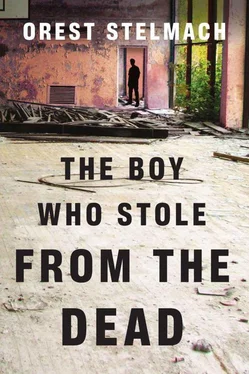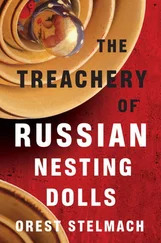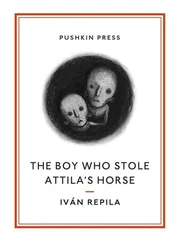Nadia pulled her computer tablet and financial calculator out of her bag. Fired up the computer, stuck the modem into the port, and turned to the financials. The two Russian companies had sales of $22.3 and $3.2 billion respectively. The American company had sales of $575 million. Nadia ran some ratios. The smaller companies were profitable but the bigger one had tiny margins.
And it dawned on Nadia. Perhaps there weren’t three owners. Perhaps the smaller companies were owned by the larger company. Or, perhaps the smaller American company was a target of the man who owned the two Russian companies. The latter argument made sense. That would explain why Ehren’s sister identified the two Russian companies but not the American one. He didn’t own it yet.
She needed to focus on the owner, Nadia thought. Not the financial statements. If she discovered the owner, she might be able to name at least two of the companies. Ehren said she could use all the resources at her disposal as long as she didn’t share the financials with anyone.
Those resources included her eyes, ears, legs, and the Internet.
Ehren also said he was going to meet with his client.
His client might be the owner.
Nadia checked her watch. It was 12:51 p.m. She had forty-four minutes left. She kept her tablet running but stuffed it in her bag. Left her calculator beside the financials. Tossed down a pen for good measure to make it obvious someone was still sitting at the table.
Nadia signaled a waiter serving a table. He ignored her. She ran over to him and asked him to bring her an iced tea and a grilled chicken salad. Told him she’d be right back.
Nadia knew the layout of the Four Seasons from several hundred company presentations. Executives pulled up in their chauffeured cars near the back entrance on Fifty-Eighth Street. The back entrance opened onto a stairwell that led downstairs to three meeting rooms. Companies looking for financing hosted presentations for professional investors in those rooms.
Nadia bolted past the front desk and out the back door. A long line of shiny black cars idled by the curb. A driver chatted with the doorman. A police cruiser was parked farther up the street. No sign of Ehren.
Nadia went back inside. A woman bustled down the stairwell. As she rounded the corner, Nadia caught a glimpse of her hair and face. Ehren’s fresh-faced associate. Nadia followed her to the basement.
The corridor teemed with investors. Ehren’s associate disappeared into one of the meeting rooms. Nadia walked the length of the hallway three times, pretending to be waiting for a friend. Each time she stole a glance inside the meeting room. On her third try, she spotted Ehren’s profile. Her spirits sank. The company making the presentation might have been the client Ehren had referred to. If so, she was out of luck. It was an American bathroom parts supplier. Not a Russian conglomerate.
Nadia walked to the back of the corridor and waited. Six minutes later, Ehren steamed out of the room, raced up the stairs, and exited via the back door. Nadia followed at a safe distance. Made sure Ehren wasn’t lurking before stepping outside the hotel.
Ehren stood beside a Maybach farther west in front of Tao, a restaurant. A chauffer with granite shoulders opened the rear passenger door. A man in a gray business suit emerged. He was tall and athletic with boyish looks. He appeared to be in his forties. He waved his finger at Ehren as though scolding him. Ehren bowed his head and took the beating.
An investment banker was yielding to another man. This client didn’t represent a lucrative revenue stream for Ehren, Nadia realized. He represented the mother of all revenue streams.
They disappeared into Tao.
Nadia pulled her New York City library card from her wallet. She slung her bag over her shoulder and carried her tablet computer in her other hand as though taking notes. She hustled over to the Maybach. The driver was reading a Russian newspaper.
Nadia rapped on the window. The driver jumped. Glared at her. Nadia rapped again. He rolled the window down.
“Nadia Tesla, New York Chronicle .” She flashed her library card and made it disappear just as quickly. “I’m doing a story on Russian oligarchs,” she said in Russian. “My cameraman just took a picture of your boss and I want to make sure I get his name right. If I get it wrong and he calls me on it, I’m going to tell him to speak with his driver. You see, this is a piece about the Russian oligarchs’ favorite charities. It’s about all the good their money is doing around the world. Now your boss, the man who just walked into Tao is Mikhail Prokorov, owner of the New Jersey Nets—”
“No, no, no. Not Mikhail Prokhorov. Simeon Simeonovich. That is Simeon Simeonovich. How can you not know that? What kind of reporter are you?”
“An incompetent one, I’m afraid.” Nadia fished her real business card out of her wallet. “Give this to Mr. Simeonovich. Tell him I look forward to working with him.”
Nadia rushed back to the hotel lounge. An iced tea and a field green salad topped with grilled chicken awaited her.
She found the Wikipedia page for Simeonovich. He earned a PhD in quantum physics at age twenty-five. He used his profits from trading metals on the Russian market to become the country’s first corporate raider. His first purchase was a smelter. He slept near the furnace for the first six months to prevent criminals from ransacking the factory. After expanding his holdings in commodity businesses, he diversified into industrials.
He consolidated his businesses under the umbrella of the Orel Group. Orel, which rhymed with “propel”, was the Russian and Ukrainian word for eagle. He was the majority owner of eleven companies. Six traded publicly on the Russian stock exchange. A seventh traded on the Ukrainian exchange. Nadia subscribed to a global database of financial statements. She checked the most recent financials for the publicly listed companies in his portfolio. Nadia was certain he would never share private company financials with an outsider, let alone use them to test analysts. The two Russian companies had to be public.
She was right. The small Russian company was a specialty steel manufacturer. The large Russian company was the consolidated corporate entity. That left the third company. The American one.
The other candidates’ inability to identify the American industrial company perplexed Nadia. They were industrial analysts. They knew the American marketplace cold. If they couldn’t recognize the company, that meant it either wasn’t American, or it wasn’t an industrial. But it had to be an industrial. Ehren had emphasized his client’s obsession with industrial expertise. And if Simeonovich was looking to acquire an American industrial, it made sense to craft a test accordingly.
That meant the company wasn’t American. It was a Russian company whose financials had been re-stated according to United States GAAP standards. That’s why no one could identify it. The company itself existed but its American financials were manufactured for the test.
Nadia converted 2010 revenue numbers for the remaining company into rubles. She scanned the income statements of Simeonovich’s other companies. She checked five of them. None matched. She converted the sales numbers for the last company in Orel, a mining equipment manufacturer. Compared it to those of the third company. They were close, but didn’t match. The sales number on the Russian financials was higher. Then Nadia remembered they probably shouldn’t match. American accounting standards were notoriously strict. The Russian accounting system allowed sales to be recognized earlier. Revenue numbers might be higher under the Russian system.
Close only mattered with horseshoes and grenades, Nadia thought. And Russian accounting standards.
Читать дальше












